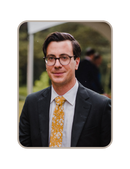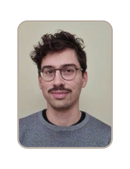Post-Doctoral Fellows
 |
Dr. Tamar Schneider Tamar is a philosopher of science working on the notion of individuality in relations, of its close and intimate milieu, as they appear in biology, ecology, and medicine. Her work is guided by the heuristics of mutuality of interactions and its unique role in constructing knowledge of systems and processes in biology. She completed her PhD in philosophy with a designated emphasis in Science and Technological Studies (STS) from the University of California, Davis (2020). Previously, she studied at Tel Aviv University, earning her master’s degree in History and Philosophy of Science and Ideas at the Cohn Institute. In her dissertation, Tamar Schneider analyzed the concept of holobiont (a heterogeneous entity of the host organism and microbial symbionts) in connection with immunity and the immune system. Her current project is on ways of understanding ecosystems with their different scales - macrobial (plants and animals) and microbial - and the interrelationships between them. |
 |
Dr. Noah Stemeroff Noah is an Azrieli Postdoctoral Fellow and Dan David Scholar at the Cohn Institute for the History and Philosophy of Science and Ideas at Tel Aviv University. He holds a PhD in the history and philosophy of science from the University of Toronto and a MA in theoretical physics from the University of Victoria. His research interests are in the history and philosophy of physics with a focus on the conceptual development of General Relativity. In addition, Noah has written on the history of philosophy, the philosophy of mathematics, and neo-Kantian philosophy of science. His current research explores the historical and conceptual development of differential geometry and its application in dynamical spacetime theories.
|
|
|
Dr. Sophie Juliane Veigl Sophie is a philosopher of biology. She studied Immunology, History and Philosophy of Science, and Comparative Literature at the University of Vienna. She obtained her PhD in philosophy in 2020. Her dissertation investigates whether scientific pluralism resonates with researchers' aims and goals. Employing social science methodology, she assessed whether different types of plurality (theoretical, explanatory, methodological) in the field of small RNA inheritance stabilize or destabilize the field. She is currently a postdoctoral fellow with the Interuniversity Program in History and Philosophy of the Life Science. Her current project traces the intersection of genetic and immune systems in invertebrates, combining both conceptual, as well as empirical/laboratory approaches. |
 |
Antoine’s research focuses on the practices of visualization in early modern natural, physical and historical sciences. He studied art history and cultural history at the universities of Lausanne and Edinburgh, and then completed a MPhil in the history and philosophy of science at the University of Cambridge. In 2021, he obtained a PhD in both art history and the history of science at the universities of Geneva and Paris Nanterre, with a monography on the career of French printmaker and polymath Sébastien Leclerc (1637-1714). He is currently investigating the practices of draughtsmen and engravers in early modern scientific institutions. He also writes about numismatics and print collections during the Enlightenment and their contribution to the development of modern historical sciences. |
|
|
Dr. Eli Lamdan historian of Soviet science, especially psychology and neurosciences. His work focuses on the interactions between the local and the transnational aspects of science in their intellectual, ideological, political and social manifestations. He completed a PhD in History and Philosophy of Science at the Hebrew University (2020) and holds an MSc in Biology from the Hebrew University. His dissertation is devoted to the intellectual biography of Alexander Luria, a well-known Soviet neuropsychologist. His current research project deals with the dissemination of Soviet (neuro)psychology within the Western scientific community during the Cold War period. eli.lamdan@gmail.com
|


